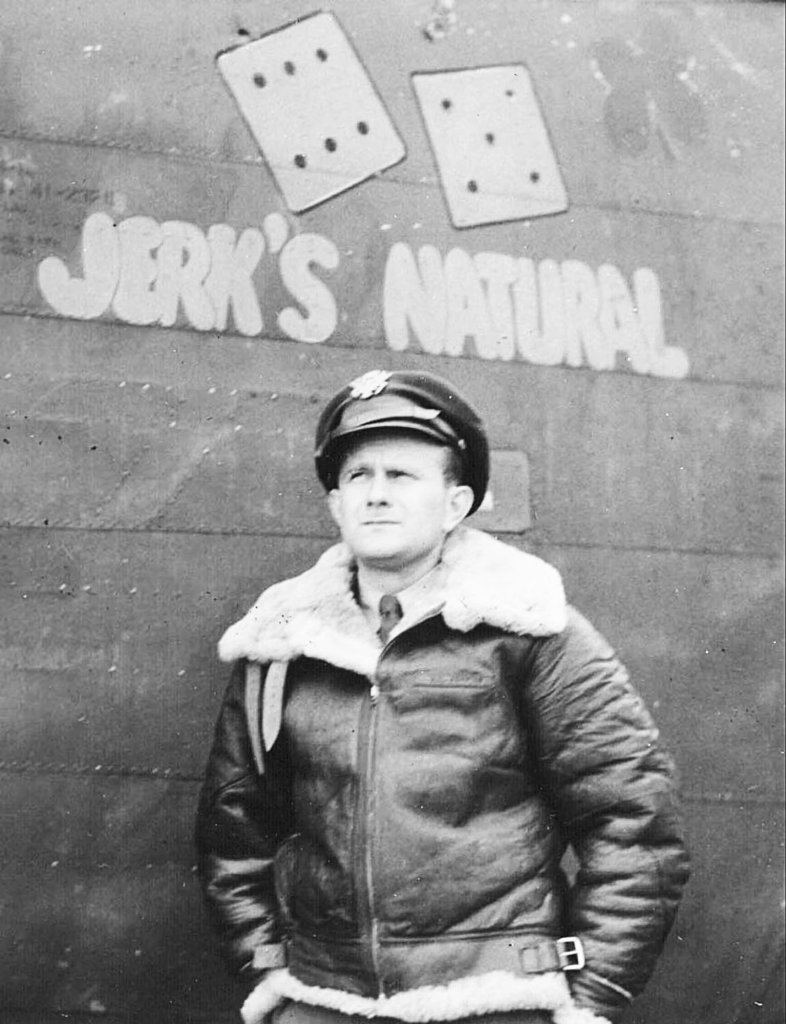Medal of Honor: John L. Jerstad – World War II, August 1st 1944
He had already flown his share of combat. He wasn’t even part of the unit anymore. But when the time came to lead the 93rd Bomb Group through the jaws of hell, Jerstad volunteered,
July 31, 2025

 MAJOR JOHN L. JERSTAD
MAJOR JOHN L. JERSTAD
Rank: Major
Unit: 9th Air Force (Lead Aircraft, 93rd Bombardment Group)
Conflict: World War II
Date of Action: August 1, 1943
Location: Ploesti, Romania
Operation: TIDAL WAVE
Award: Medal of Honor (Posthumous)
Summary of Action:
On the morning of August 1, 1943, five groups of B-24 Liberators roared off dusty Libyan airstrips and vanished into the sunrise. Their mission: to strike a deathblow at Nazi Germany’s fuel supply by obliterating the heavily defended oil refineries of Ploesti, Romania—the lifeblood of Hitler’s war machine.
At the head of one of those formations flew Major John L. Jerstad, a man who didn’t have to be there.
He had already flown his share of combat. He wasn’t even part of the unit anymore. But when the time came to lead the 93rd Bomb Group through the jaws of hell, Jerstad volunteered, believing his presence could make the difference.
Flying at treetop level to avoid radar and minimize exposure to flak, Jerstad's Liberator thundered across the Balkans into a fortress of steel and fire. German and Romanian defenses were on full alert—flak guns, machine guns, barrage balloons, and smoke screens waited like a snare. Still, Jerstad led his formation directly into the maelstrom.
Three miles from the target, disaster struck.
His aircraft took a savage hit—flak tore through the fuselage, igniting fire inside the bomber. A lesser man would have turned away. Just below, open fields offered a clear chance to ditch the aircraft and save the crew.
But Jerstad never flinched. He knew that if the lead ship broke formation, the entire bombing run could collapse. The rest of the group was counting on his steadiness. He gripped the yoke and stayed the course—flames billowing, bullets ripping past his canopy.
 At last, with his aircraft engulfed and failing, Jerstad dropped his bombs on target—hitting the refinery with deadly precision. Only then, with no chance left, did his burning bomber go down—crashing into the heart of the target zone he came to destroy.
At last, with his aircraft engulfed and failing, Jerstad dropped his bombs on target—hitting the refinery with deadly precision. Only then, with no chance left, did his burning bomber go down—crashing into the heart of the target zone he came to destroy.
He never returned. But his courage carried an entire formation through fire. His leadership helped inflict lasting damage on Hitler’s fuel empire—and inspired a generation of warriors.
Medal of Honor Citation:
"Although he had completed more than his share of missions... he volunteered to lead the formation... Three miles from the target his airplane was hit, badly damaged, and set on fire. Ignoring the fact that he was flying over a field suitable for a forced landing, he kept on the course... By his voluntary acceptance of a mission he knew was extremely hazardous, and his assumption of an intrepid course of action at the risk of life... Maj. Jerstad set an example of heroism which will be an inspiration to the U.S. Armed Forces."

